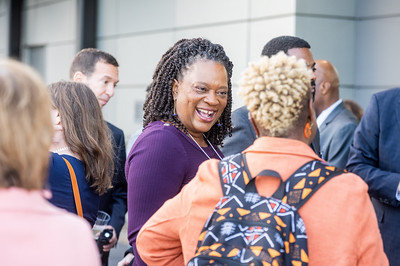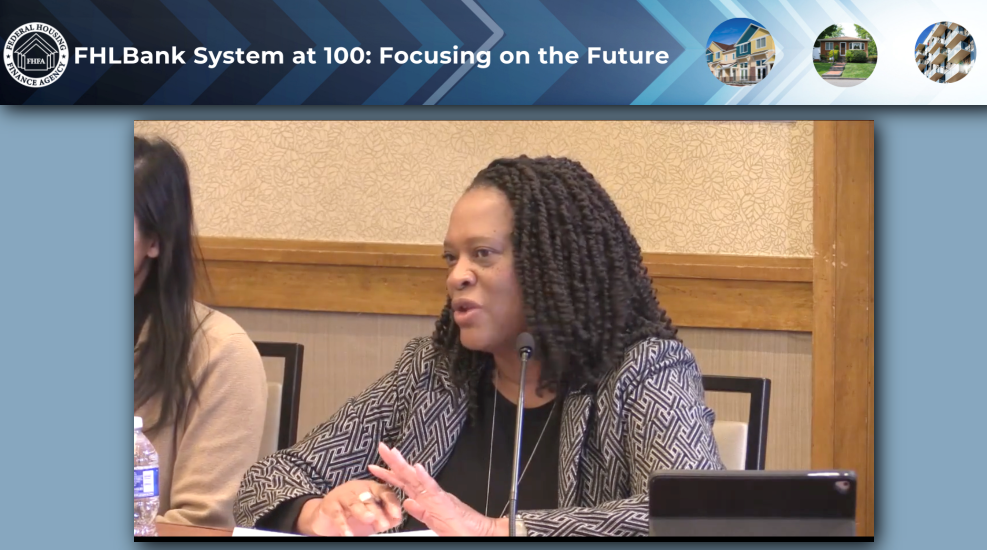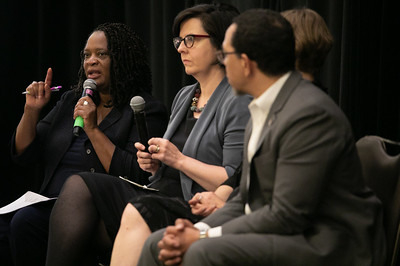I have just passed my first anniversary serving as President and CEO of Housing Partnership Network (HPN). It has been a busy year, transitioning from more than 25 years developing affordable housing in California, to leading a national organization of the finest affordable housing nonprofits in the country. So, I’ve been thinking recently about the myriad ways in which we honor the past. For many of us, it begins with taking the time to better understand the people who came before us and the challenges they looked to overcome, whether that is by honoring an important historical moment, like Juneteenth or learning more about our own family histories.
But it shouldn’t end there. We need to build on those legacies tenaciously, drawing on lessons learned, recognizing hopes still unmet, and acting in ways that turn long-held aspirations into real opportunities.

With policy leaders in Washington DC, October 2022
For HPN and for the field of affordable housing, I think the implication of that approach is clear: the way that we defined progress in the past is not how we should define it today, much less in the future. That sentiment was evident at HPN’s 30th anniversary celebration in April, as well as at our member meeting last month. While we paid tribute to the groundbreaking work that has helped advance the field of affordable housing over the years, nearly everyone I spoke to agreed there is much, much more that needs to be done, and HPN has the infrastructure in place to help lead that effort. Working collaboratively with our practitioner-members, we can develop and drive business, policy, and capital markets solutions that change the outlook for families and communities across the country.
For example, think about how our field typically talks about progress. It is often described in terms of dollars invested and units built, which ultimately connects to people housed. Those metrics are critical, of course, given the nation’s urgent need for affordable housing. But they aren’t the endgame, at least not entirely. For that, we need to go a step further, to be intentional about how our work influences core concerns like racial equity, economic mobility, and community health and vibrancy. Housing is central to social and economic justice, and HPN is a platform to help achieve these aims.

At a Federal Home Loan Bank's regional roundtable in California, February 2023
In the coming months, I want to use this space to talk about what it will take for developers, lenders, funders and policymakers to generate new ideas, operationalize innovation, and scale up impact in significant, sustainable ways.
Those three simple concepts—ideas, innovation, and impact—are not just a continuum of progress. They define HPN. Our members are housing pioneers in their communities, and through HPN they have a platform to leverage their collective talent, market power and business acumen and achieve more than they could alone. Our catalytic value is at the market and systems level, which ultimately affects the outlook for development projects, communities, and, most importantly, the individuals and families that we serve.
At the Ford Foundation Center for Social Justice, April 2023
We recently launched a new strategic planning process to build on our success over the past 30 years and envision our work for the next 30 years and beyond. In the coming months, we will have many frank and dynamic discussions about what our members are seeing on the ground, what they need to strengthen their communities and how that informs our work going forward, running the gamut from new social enterprises to new policy proposals. But one thing is already clear: we need to disrupt the status quo, to raise the bar for what constitutes success in affordable housing and connect creative ideas to transformative outcomes.
In part, I think that means finding new ways to mitigate deepening housing instability across the country, which has worsened because of the pandemic, and we are only now beginning to see how much. It means making housing a centerpiece of strategies that help people build their incomes and wealth, offering a pathway out of poverty. It means connecting affordable housing development to just climate solutions as a matter of course, not happenstance. And, it means developing an inclusive, expert talent pool for the future, so that the field of housing and community development begins to look more like the communities we serve. I can speak personally on this notion – lived experience helps fuel strategies that work.

With Erika Poethig, Anthony Simpkins (NHS Chicago), and Stacie Young (CIC) discussing Uneven Investment Patterns in Chicago's Neighborhoods, June 2023
Those are just a few of the opportunities on the horizon. For HPN, tackling these issues isn’t optional—there is no other platform that connects the nation’s top mission-driven developers and lenders with like-minded funders, investors, intermediaries, and advocates. Through that nexus we grow, test, and implement solutions that make housing development more efficient and effective, not just for HPN members but for the field
Our collective work is as important right now as it has ever been. The quality of our built environment, especially housing, is a powerful contributor to our national economic well-being. It can deliver multi-generational gains to millions of families in urban, rural, and tribal communities. Together, we can reimagine and construct a more fair and just future for all.
If you want to share ideas or concerns about what you are seeing in your communities, please reach out to me at [email protected].
